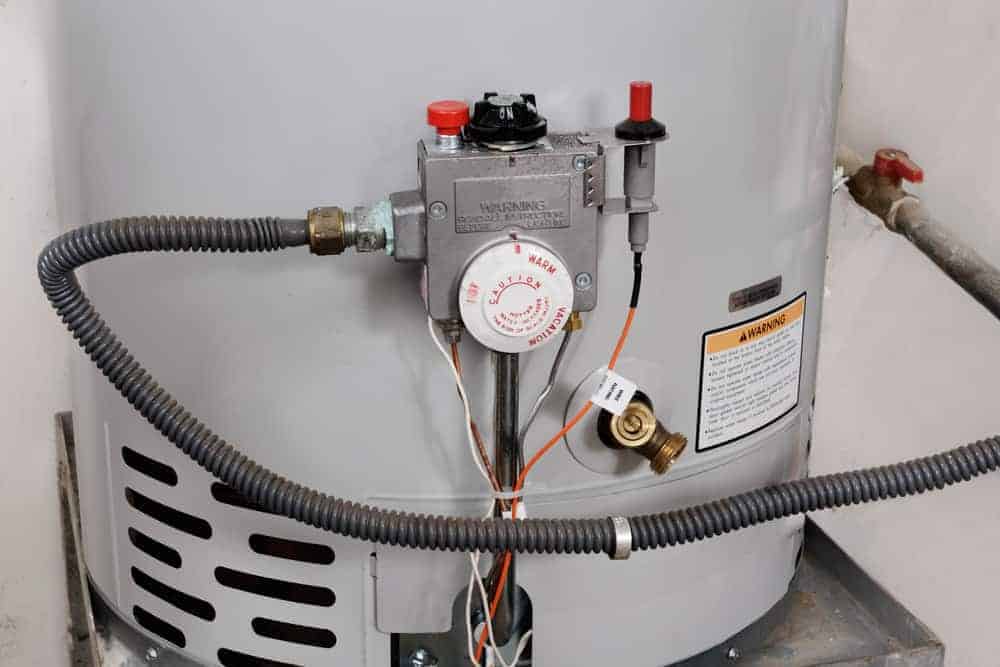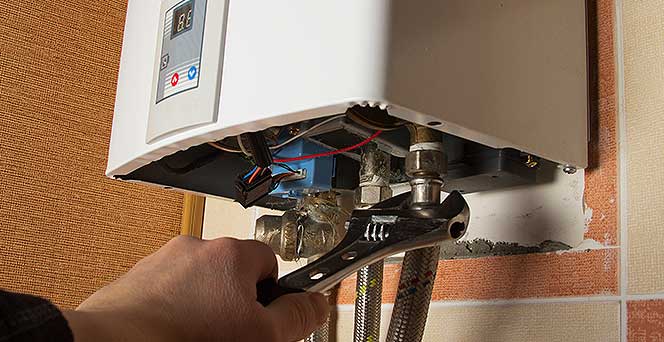Essential Measures for House Owners Handling Malfunctioning Hot Water Systems
Essential Measures for House Owners Handling Malfunctioning Hot Water Systems
Blog Article
We've stumbled upon this great article on Broken Water Heaters listed below on the net and think it made sense to write about it with you on this page.

Whether it lies in the basement or a different space, busted hot water heater can cause anxiety. A common unit holds 80 gallons, so an over night leakage will bring about a flood. This leads to significant residential property damage with soaked wall surfaces and floors. Having no warm water supply is additionally problematic. If you are taking care of these concerns, keep in mind of the following:
Call the Plumber
After doing the initial 2 safety and security steps, you have to call your plumber to find right now to take care of a fractured water heater. Nevertheless, bear in mind that your device will not just conk out dramatically overnight. There are usually indicators that your aging water heater has debris buildup in the inside. Keep in mind of the following:
Do not await major flooding to call the plumber. Already, you will certainly need to spend even more to restore your residential or commercial property. Instead, as quickly as you detect these indications, have a specialist pertained to check your hot water heater tank. Usually, water heaters have a life expectancy of about 8 to 12 years. With routine examination as well as upkeep, you can extend its life.
Cut Off the Cold Water Supply
Cut off the containers tap water supply from the resource. When your tank is in excellent condition, the chilly water stops filling up when the container is full. If you can not discover it or reach it, you must transform off that primary water supply line outside your building.
Shut Off Power Source
Prior to calling the plumber, shut down a gas hot water heater by transforming the temperature dial. This is normally located at the top of the thermostat. Switch over off the circuit breaker if you have a model that runs on electrical power. This will certainly prevent electrocution, specifically if there is a leakage as water is a conductor. Typically, the burner shuts down when the water strikes a particular temperature level. With a broken storage tank, it might malfunction. Cutting it off assures you remain safe.
Clean Up Home
After calling the plumber, record damage by taking notes as well as pictures so you can declare your house owner's insurance policy. Get rid of any standing water to prevent mold as well as mildew development. If you have a submersible water pump, utilize that to drain pipes the water.
Remember, if you see any problems with your hot water heater, call the pros right now. You can not take this trouble gently because a malfunctioning thermostat can raise water temp to a hazardously high degree, resulting in unexpected burns. A damaged heater pressure relief valve can additionally create an explosion. For best results, get a yearly check so your device gets checked, cleansed, drained, as well as replenished, guaranteeing optimum performance.
After doing the initial 2 safety actions, you must call your plumber to come right away to take care of a burst water heater. Rather, as soon as you spot these indications, have actually an expert come to examine your water heating system storage tank. Prior to calling the plumber, closed off a gas water heating system by transforming the temperature dial. If you have a submersible water pump, make use of that to drain the water. Remember, if you notice any kind of problems with your water heating unit, call the pros right away.
Is My Water Heater Broken?
The Water Heater is Old
No appliance will last forever. This includes a home’s water heater. During its lifespan, residents are going to face a situation where a new water heater installation will be necessary. The biggest problem with this is that most people are not sure when their water heater expires. Not knowing this can lead to serious risks if the unit begins to act up due to old age.
Most makes and models of water heaters will last between eight and 10 years. While 10 years is the age when water heater replacement is highly recommended, the need to replace the unit may occur before this time or after. If the unit doesn’t show any symptoms of a problem, it is a good idea to replace it at the 10-year mark (from the manufacture date).
Some of the symptoms that indicate a new unit is needed include rusting, leaks, noises, and a failure to heat up the water. Also, note that not all units have a 10-year life expectancy. The main exception to this rule is that a gas unit will last for six to eight years.
Rusty Heater Inlet Valve or Water
While steel is the strongest material on earth, it does have a weakness – rust. If corrosion occurs on a steel surface, it will begin to spread and eat through the steel in certain areas. On water tanks and pipes that are made of steel, rust is a warning sign of an impending leak.
The issue for many is trying to figure out if the rust is coming from the water heater or the pipes that lead to the faucet. If rust is seen, it is a clear indication that water heater service from the professionals is needed.
If rusty water appears out of the faucets in the bathtub or sink, it likely means a rusty water heater. If there is rust near the water inlet or the pressure relief valve, rust has likely developed inside the tank. If tap water appears rusty, it may be an issue with the pipes.
Strange Sounds from the Water Heater
Are there strange sounds coming from the tank? As a water heater gets older, rumbling noises may develop and get louder and louder as the water in the tank heats up. In homes where large amounts of hot water are used, the issue is likely going to be even more obvious when more serious issues arise. If there is a strange or loud noise coming from the unit, it is probably because of sediment buildup. A good way to remedy this problem is by flushing the heater. If this does not work, then a new unit may need to be installed.
Leaks
As a water heater gets closer to the end of its useful life, there is a higher chance there will be water around the tank. If there is water, this usually means leaks are occurring. Based on where the unit is located in the home, a leak may result in serious property damage.
Leaks are usually caused by expansions in the metal tank. The expansions occur as time passes and as the inside body of the tank is exposed to multiple heating cycles per day. When a fracture forms, the gap will be slight enough to hold the water in; however, in more serious situations, this will not be the case. If the tank is idle, the water will not leak but when the metal expands during each heating system, small amounts of water will get through the gap.

As an avid reader about Maintaining & Draining a Water Heater, I imagined sharing that section was sensible. Sharing is caring. Helping others is fun. Thank-you for taking the time to read it.
Best in emergency plumbing services. Report this page